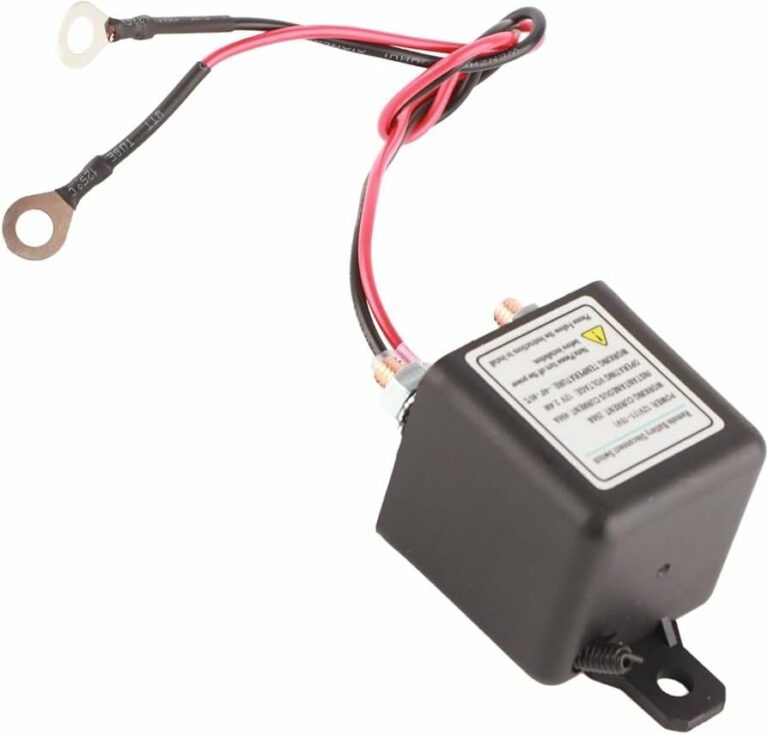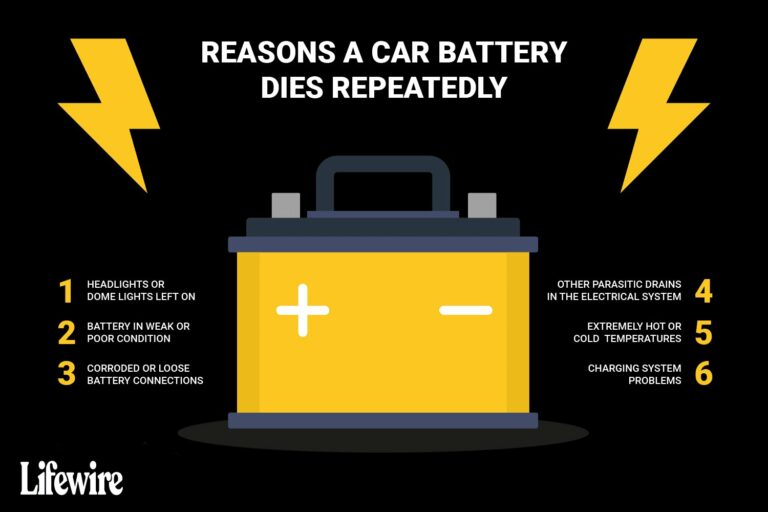Prevent Car Battery Voltage Loss While Using A Car Charger
Want to Prevent Car Battery Voltage Loss While Using A Car Charger? We’ve got you covered! The key to avoiding voltage loss is following a few simple steps. By incorporating these techniques into your routine, you’ll ensure that your car battery stays fully charged and ready to go. So, let’s dive in and find out how to prevent car battery from losing voltage while using a car charger. Trust us, your battery will thank you!
How to Prevent Car Battery from Losing Voltage while Using a Car Charger?
Using a car charger to power your devices can be convenient, especially during long road trips or in emergencies. However, it’s important to be cautious and prevent your car battery from losing voltage while using a car charger. A drained battery can leave you stranded and in need of a jump-start, which can be a hassle to deal with. In this article, we will provide you with practical tips and strategies to ensure that your car battery remains charged and operational while using a car charger.
Understanding Car Chargers and Battery Drain
Car chargers are designed to utilize the electrical system of your vehicle to power up your devices. However, this can lead to draining your car battery if not managed properly. It’s essential to comprehend the factors that contribute to battery drain and take necessary precautions to prevent it.
1. Check the Quality of Your Car Charger
A high-quality car charger is crucial in minimizing battery drain. Consider investing in a charger that has built-in safety features such as overcharge protection, short-circuit protection, and smart charging capabilities. These features help to regulate the charging process and prevent excessive voltage draw from your car battery.
2. Use a Car Charger with Low Power Consumption
Car chargers come in various power ratings. Opt for a charger with low power consumption to minimize the strain on your car battery. Chargers with a power rating of 1-2 amps are generally recommended as they draw less current and place less stress on the battery.
3. Avoid Leaving the Car Charger Plugged In
Leaving your car charger plugged in when not in use can continuously drain power from your car battery. Make it a habit to unplug the charger from the cigarette lighter socket when you’re not actively charging your devices. This simple action can significantly reduce the chances of battery drain.
Optimizing Your Car Battery Charging
Besides selecting the right car charger and being mindful of its usage, there are additional steps you can take to optimize your car battery’s charging process and preserve its voltage.
1. Monitor Your Charging Time
Avoid overcharging your devices or leaving them plugged in for an extended period. Once your devices are fully charged, unplug them promptly to prevent unnecessary power consumption and battery drain.
2. Charge Small Devices Separately
If you have multiple devices to charge, consider using separate chargers or charging them sequentially rather than simultaneously. Charging several devices at once can increase the power draw on your car battery, potentially leading to voltage loss.
3. Inspect Your Car Battery Regularly
Perform routine checks on your car battery to ensure it is in optimal condition. Look for signs of corrosion on the battery terminals and clean them if necessary. Additionally, keep an eye out for any cracks or leaks, as these can affect the battery’s performance and lifespan.
4. Maintain Proper Battery Fluid Levels
For batteries with removable caps, periodically check the fluid levels and add distilled water if required. Keeping the battery properly topped up with distilled water can help maintain its overall health and performance.
5. Drive Your Car Regularly
Regularly driving your car can help keep the battery charged. When your vehicle’s engine is running, it charges the battery through the alternator. If you primarily use your car for short trips, consider taking longer drives occasionally to give the battery ample charging time
What Voltage Should Car Battery Be?!
Frequently Asked Questions
How can I prevent my car battery from losing voltage while using a car charger?
There are several steps you can take to prevent your car battery from losing voltage while using a car charger:
Should I turn off my car before connecting the charger?
Yes, it is recommended to turn off your car before connecting the charger. This will prevent any electrical interference and ensure a safer charging process.
Can I use a charger with a lower voltage rating?
No, it is important to use a charger that matches the voltage rating of your car’s battery. Using a charger with a lower voltage may not provide sufficient power to charge the battery properly.
How often should I use a car charger to maintain my battery’s voltage?
It is generally recommended to use a car charger once every 2-4 weeks to maintain your battery’s voltage. However, the frequency may vary depending on your specific car and usage patterns.
Can I leave the car charger connected for an extended period of time?
While it is possible to leave the car charger connected for an extended period of time, it is not recommended. Overcharging can damage the battery and potentially shorten its lifespan. It is best to monitor the charging process and disconnect the charger once the battery is fully charged.
Are there any safety precautions I should follow while using a car charger?
Yes, it is important to follow some safety precautions while using a car charger. Make sure to read and follow the instructions provided by the charger manufacturer. Additionally, ensure that the charger is connected properly and avoid charging in extreme temperatures or wet conditions.
Should I disconnect the charger once the battery is fully charged?
Yes, it is recommended to disconnect the charger once the battery is fully charged. Overcharging the battery can lead to damage and reduce its overall lifespan. Monitoring the charging process and disconnecting the charger at the appropriate time will help maintain the battery’s health.
Final Thoughts
To prevent a car battery from losing voltage while using a car charger, there are a few key steps to follow. Firstly, opt for a high-quality car charger that is specifically designed for your vehicle’s battery type. This will ensure compatibility and minimize voltage loss. Secondly, avoid excessive power consumption by turning off any unnecessary electrical devices when charging. Additionally, regularly inspect the charger and battery for any signs of damage or corrosion, addressing any issues promptly. By implementing these measures, you can effectively maintain the voltage of your car battery while using a car charger.


